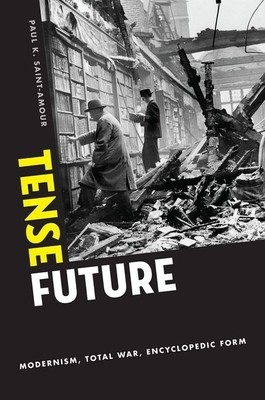
- We will send in 10–14 business days.
- Author: Paul K Saint-Amour
- Publisher: Oxford University Press, USA
- ISBN-10: 0190200952
- ISBN-13: 9780190200954
- Format: 15.5 x 23.4 x 2.8 cm, softcover
- Language: English
- SAVE -10% with code: EXTRA
Reviews
Description
We know that trauma can leave syndromes in its wake. But can the anticipation of violence be a form of violence as well? Tense Future argues that it can-that twentieth-century war technologies and practices, particularly the aerial bombing of population centers, introduced non-combatants to a coercive and traumatizing expectation. During wartime, civilians braced for the next raid; during peacetime they braced for the next war. The pre-traumatic stress they experienced permeates the century's public debates and cultural works. In a series of groundbreaking readings, Saint-Amour illustrates how air war prophets theorized the wounding power of anticipation, how archive theory changed course in war's shadow, and how speculative fiction conjured visions of a civilizational collapse that would end literacy itself. And in this book's central chapters, he shows us how Ford Madox Ford, Robert Musil, James Joyce, Virginia Woolf, and other interwar modernist writers faced the memory of one
war and the prospect of another, some by pitting their fictions' encyclopedic scale and formal turbulence against total war, others by conceding war's inevitability while refusing to long for a politically regressive peace.
EXTRA 10 % discount with code: EXTRA
The promotion ends in 17d.12:46:50
The discount code is valid when purchasing from 10 €. Discounts do not stack.
- Author: Paul K Saint-Amour
- Publisher: Oxford University Press, USA
- ISBN-10: 0190200952
- ISBN-13: 9780190200954
- Format: 15.5 x 23.4 x 2.8 cm, softcover
- Language: English English
We know that trauma can leave syndromes in its wake. But can the anticipation of violence be a form of violence as well? Tense Future argues that it can-that twentieth-century war technologies and practices, particularly the aerial bombing of population centers, introduced non-combatants to a coercive and traumatizing expectation. During wartime, civilians braced for the next raid; during peacetime they braced for the next war. The pre-traumatic stress they experienced permeates the century's public debates and cultural works. In a series of groundbreaking readings, Saint-Amour illustrates how air war prophets theorized the wounding power of anticipation, how archive theory changed course in war's shadow, and how speculative fiction conjured visions of a civilizational collapse that would end literacy itself. And in this book's central chapters, he shows us how Ford Madox Ford, Robert Musil, James Joyce, Virginia Woolf, and other interwar modernist writers faced the memory of one
war and the prospect of another, some by pitting their fictions' encyclopedic scale and formal turbulence against total war, others by conceding war's inevitability while refusing to long for a politically regressive peace.


Reviews